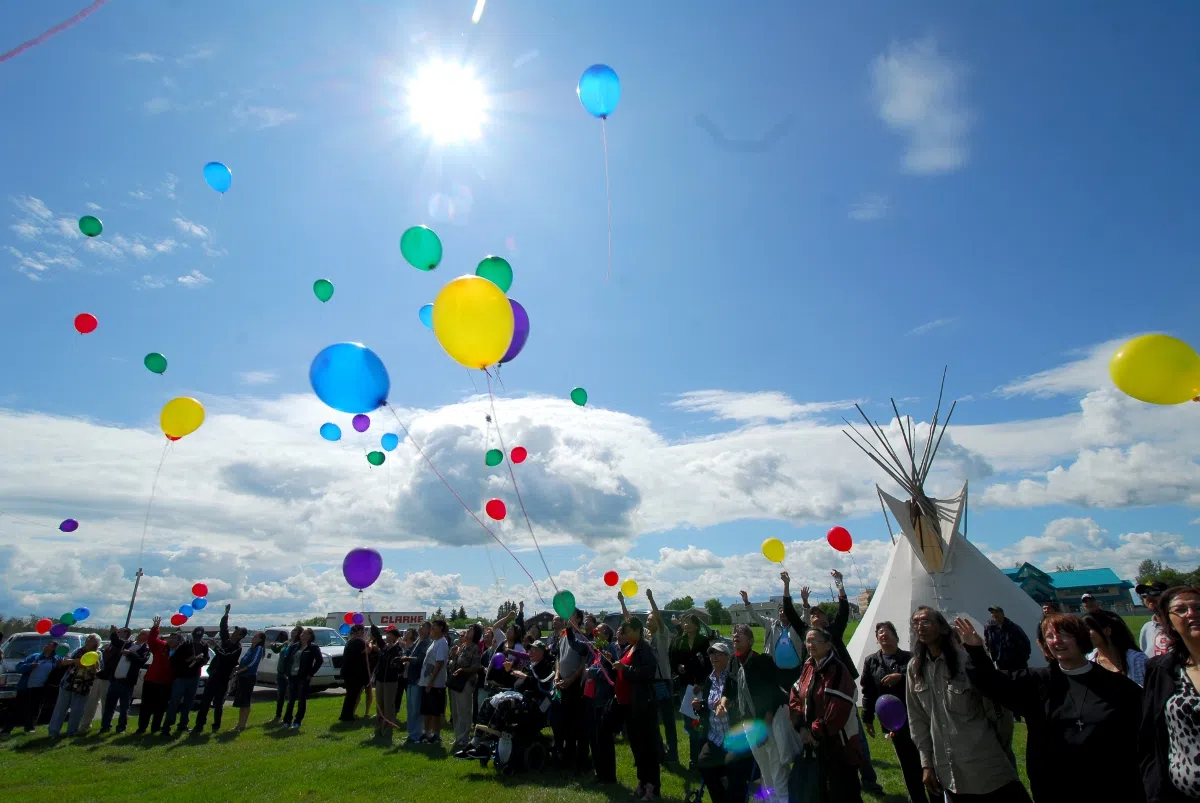
Community comes together helps find healing
The scars of abuse in Canada’s residential school may never fully heal, but it’s through community and communication that those in area are healing.
From July 27 – 28, several hundred people came to Prince Albert and the Peter Ballantyne Cree Nation Urban Reserve to attend the Prince Albert Grand Council’s Residential School Gathering.
It’s part of the federal government’s Truth and Reconciliation Commission. It sets out to acknowledge the often grim realities of the more than 130 residential schools and the 150,000 students that went through the system and works towards recording their history and providing support to help with the healing process.
Howard Walker, originally from the James Smith Cree Nation was the master of ceremonies. He said it was important to have a venue to for the aboriginal community to join together.

